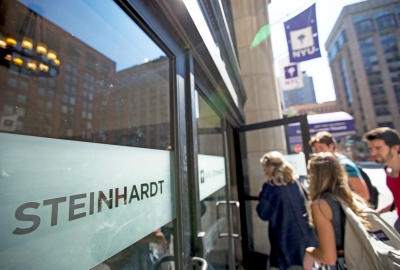Whether large, small, wide, high-definition, public, personal, shared, or handheld, screens are one of the most pervasive technologies in everyday life. From spaces of work to spaces of leisure, screens are sites for collaboration, performance, surveillance, and resistance. This course traces the cultural history of screens from a range of forms - from the panorama to the cinema, from the radar system to the television, and from the terminal to the mobile device - to provide a way of thinking about the development of the screen as simultaneously architectural, material, representational and computational.
Course #
MCC-UE 1347
Credits
4
Department
Media, Culture, and Communication


